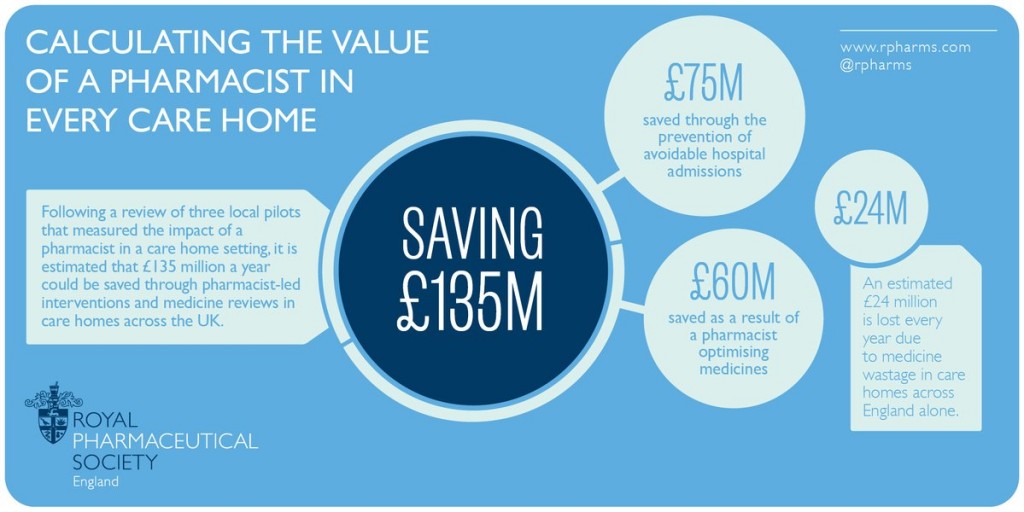NHS Could Save £135m Annually By Having a Pharmacist in Every Care Home
The NHS could save a massive £135 million a year by having a pharmacist in every care home across the UK according to a new report published by the Royal Pharmaceutical Society (RPS). The report, ‘The Right Medicine – Improving Care in Care Homes‘, highlights that having pharmacist led reviews in care homes improves both patient safety for the elderly but can also save the NHS money by preventing avoidable hospital admissions. Due to the reports findings’, the RPS, Alzheimer’s Society, The Patients Association and Care England have all called for a pharmacist to be apart of the healthcare team. The pharmacist would take charge over the medication system and how medicines are used within the care home with an aim to improving patient care. They would also reduce waste of the NHS medicines and look to prevent the serious harm that can be caused by inappropriate medicines used in elderly residents.
The chair of the RPS English Board, Sandra Gidley, came out and said: “Care home residents take an average of seven medicines a day with some taking double or treble this amount. The number of drugs prescribed by hospital, community and out of hours care for multiple conditions can quickly mount up. Without a regular review of what’s still needed, this cocktail of drugs can cause poor health, a lower quality of life and costly unnecessary admissions to hospital.”
Gidley went on to say that there is a need to “improve the care of residents by ensuring a pharmacist has responsibility for the whole system of medicines and their use within the care home.”
In light of this report, the University of East Anglia received £2 million for research into reducing medication error in care homes.They will have GPs and pharmacists working together. The GP will continue to manage acute problems and assume overall responsibility for individual resident care whilst a pharmacist will assume responsibility for medicines management.
Professors Richard Holland, Norwhich Medical School, and David Wright, UEA School of Pharmacy, are leading the research in collaboration with a number of leading universities. Holland went on to say that “this is an incredibly exciting opportunity for GPs and pharmacists to work together to improve patient care in the primary care setting.” If you would like to know more about the research project check out the full announcement from the university here.

